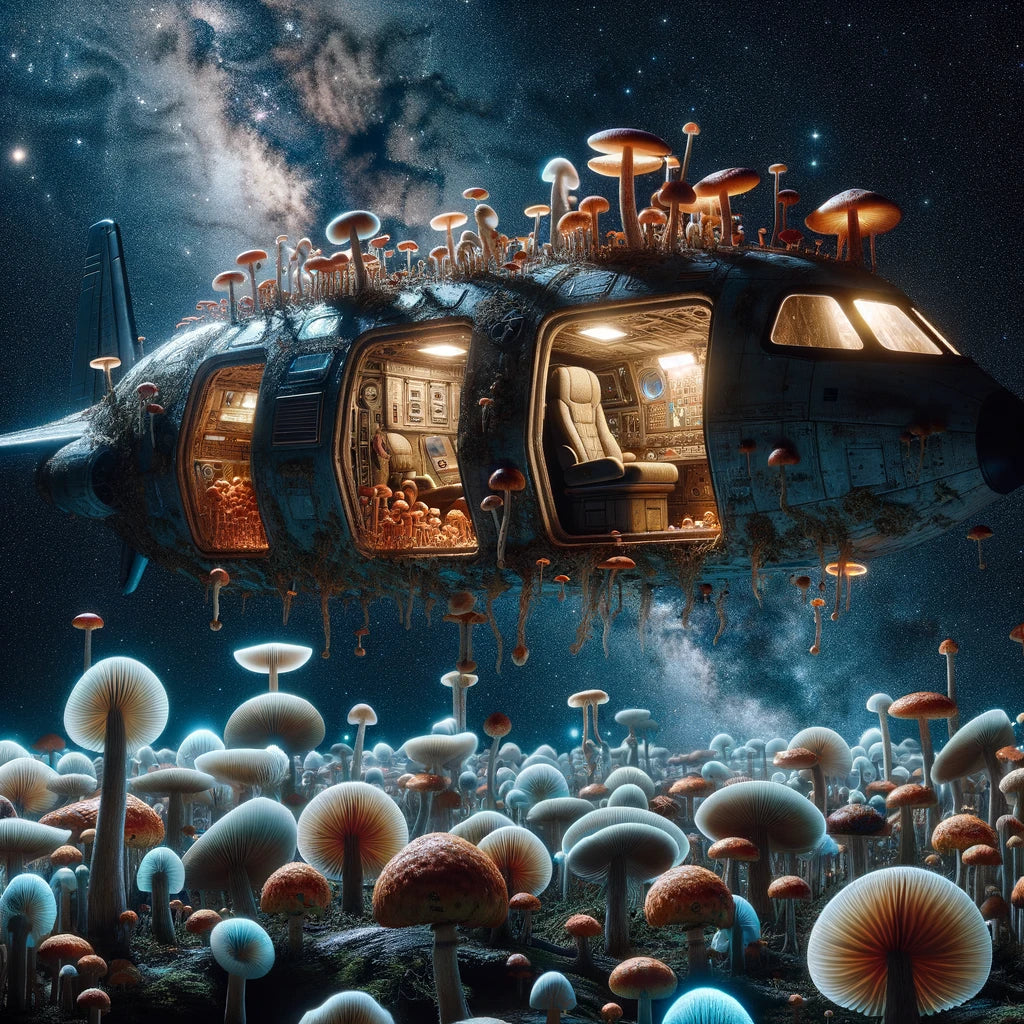As humanity looks toward the stars and dreams of colonizing other planets, the challenges of sustainable life support systems become paramount. Surprisingly, fungi, including mushrooms, offer promising solutions to several of these challenges. From bioregeneration to food production, fungi's versatility and efficiency have caught the attention of scientists and space agencies worldwide. This blog post explores the potential role of fungi in supporting space travel and colonization efforts, particularly for missions to Mars and the Moon.
Fungi as a Sustainable Food Source
One of the most critical needs for long-term space missions is a reliable, self-renewing food source. Fungi, with their high growth rate and minimal requirements, emerge as an ideal candidate. Edible mushrooms can be cultivated on a variety of substrates, including agricultural waste and by-products from other life support systems, making them a sustainable option for space habitats. Moreover, mushrooms are nutritious, providing essential proteins, vitamins, and minerals, which are crucial for maintaining astronaut health in the challenging conditions of space.
Bioregeneration and Waste Recycling
The closed environments of space habitats necessitate efficient recycling of waste and regeneration of life-supporting resources. Fungi's ability to decompose organic matter can be harnessed to break down waste products, turning them into compost for growing more food or into substrates for additional fungal cultivation. Certain fungi can also detoxify contaminants, contributing to water purification processes and maintaining a healthy living environment for astronauts.
Building Materials and Manufacturing
Beyond their role in bioregeneration and food production, fungi have the potential to revolutionize the manufacturing of building materials in space. Mycelium, the root-like structure of fungi, can be grown into durable, lightweight materials for insulation, packaging, and even structural elements. This biofabrication process requires significantly less energy and resources than traditional manufacturing, making it ideal for off-planet environments where efficiency is paramount. Research into mycelium-based composites is exploring their use in creating habitats on the Moon and Mars, offering a sustainable solution for constructing safe and comfortable living spaces.
Life Support Systems
Integrating fungi into life support systems could enhance efficiency and resilience in space habitats. For example, fungal cultures could be part of bioreactors that process carbon dioxide, produce oxygen, and generate biomass. This multifunctional approach not only reduces the reliance on Earth-supplied resources but also contributes to a more Earth-like, psychologically comforting environment for space travelers.
The Road Ahead
While the idea of utilizing fungi in space colonization is still in the early stages of research and development, the potential applications are vast and promising. Collaborations between mycologists, engineers, and space scientists are crucial for advancing our understanding of how best to integrate fungi into off-planet living systems. As space agencies like NASA and private companies push further into space exploration, the role of fungi in making life sustainable beyond Earth becomes increasingly apparent.
Conclusion
Fungi offer innovative solutions to some of the most significant challenges facing off-planet colonization. Their role in food production, waste recycling, material manufacturing, and life support systems highlights the importance of biological approaches in the future of space exploration. As we continue to explore the possibilities of living beyond Earth, the humble mushroom may well be a key ally in our quest to become an interplanetary species.
